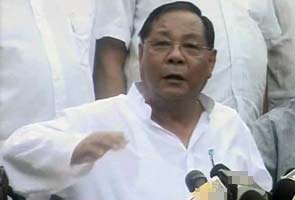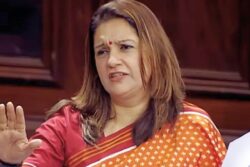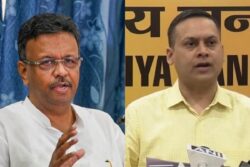PA Sangma moves Supreme Court against Pranab Mukherjee’s election as President

New Delhi: Former Lok Sabha Speaker and NDA’s presidential candidate PA Sangma has moved Supreme Court challenging the election of Pranab Mukherjee as President. Mr Sangma wants Mr Mukherjee’s election set aside because he was holding office of profit on the date of his nomination.
 In a petition he says, Mr Mukherjee was holding the office of Chairman of Indian Statistical Institute at the time of his nomination. He has alleged proper procedure was not followed in accepting Mr Mukherjee resignation from Indian Statistical Institute. The petition also claimed that the Returning Officer should have rejected Mr Mukherjee’s nomination as he held office of profit.
In a petition he says, Mr Mukherjee was holding the office of Chairman of Indian Statistical Institute at the time of his nomination. He has alleged proper procedure was not followed in accepting Mr Mukherjee resignation from Indian Statistical Institute. The petition also claimed that the Returning Officer should have rejected Mr Mukherjee’s nomination as he held office of profit.
Mr Sangma’s counsel Satyapal Jain said, “Mr Mukherjee neither resigned from the post nor his resignation was accepted. That document was made later to save Mr Mukherjee’s nomination. The court should set aside Mr Mukherjee’s election and declare Mr Sangma as elected because there were only two candidates in the fray.”
Mr Mukherjee defeated Mr Sangma in the election with 69.31 per cent votes. While Mr Mukherjee got 69.31 per cent votes, Mr Sangma could only garner 30.69 per cent of the total votes.
This isn’t the first instance where a sitting President’s election has been challenged. In 1969, VV Giri, an independent candidate, won by a conscience vote against the official Congress nominee Neelam Sanjeeva Reddy. After Mr Giri’s election, a petition was filed in the Supreme Court, urging that the election should be set aside because of use of corrupt practices to influence voters.
Mr Giri had the option of getting a court-appointed commissioner examine him at Rashtrapati Bhavan, but he preferred to appear in person. Faced with an unlikely situation – an incumbent President deposing before it as witness- the Supreme Court ordered a special chair. While Mr Giri continued as President, the court examined him as witness. The case was finally dismissed and his election was upheld by the Supreme Court.





